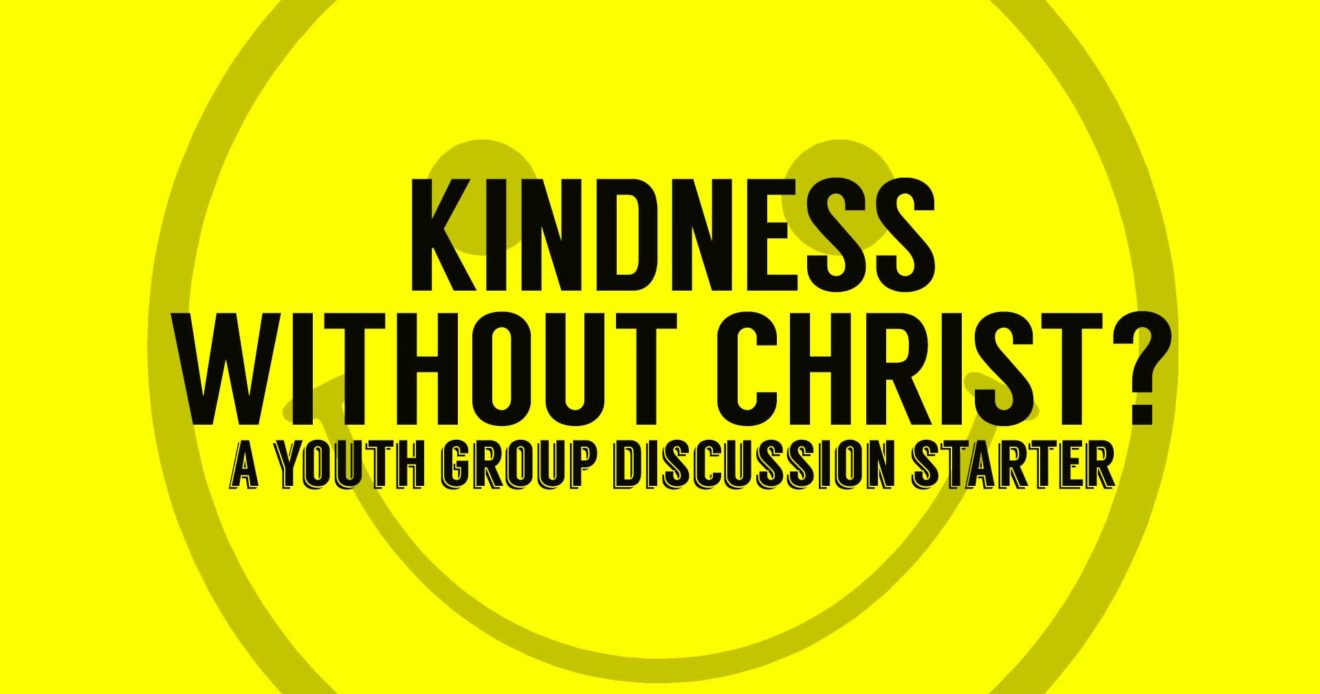
Discussion Starter: Kindness Without Christ?
There’s a movement in the culture right now promoting kindness and decency as values we should reclaim. It’s a secular movement that seems to resonate with youth, especially. It goes beyond religion to a sort of positive peer pressure: “Don’t be a jerk.”
For instance, the New York Times 6th Floor blog recently printedwriter George Sauders’s 2013 commencement address at Syracuse University. He sums up his advice to the graduates with the words “try to be kinder.”
He’s almost apologetic for suggesting such a warm and fuzzy approach to life – and he explains why he believes makes it so hard to be kind:
Each of us is born with a series of built-in confusions that are probably somehow Darwinian. These are: (1) we’re central to the universe (that is, our personal story is the main and most interesting story, the only story, really); (2) we’re separate from the universe (there’s US and then, out there, all that other junk – dogs and swing-sets, and the State of Nebraska and low-hanging clouds and, you know, other people), and (3) we’re permanent (death is real, o.k., sure – for you, but not for me).
Now, we don’t really believe these things – intellectually we know better – but we believe them viscerally, and live by them, and they cause us to prioritize our own needs over the needs of others, even though what we really want, in our hearts, is to be less selfish, more aware of what’s actually happening in the present moment, more open, and more loving.
So how do we overcome our nature and begin to live less selfishly and more kindly? Saunders suggests that, though difficult, it is possible and that it becomes easier as we get older, with a degree of selflessness brought on by parenthood, grandparenthood and a growing awareness of the brevity of life.
Okay, fine. What does that have to do with you? Only this: We are urging our students to live kindly in the power of Christ within a culture that is increasingly telling them that true kindness – and morality, in general – are attainable apart from Christ or the work of the Holy Spirit. It’s a false gospel fighting for their allegiance, and it’s worth talking about.
On the one hand, we don’t want our students to equate moralism – or mere niceness – with what it means to be a Christian. Everyone values displays of kindness no matter what they believe about Jesus. On the other hand, we also want our students to understand the difference between “being nice” and being transformed in our ability to selflessly give ourselves away to others for the glory of God.
So here are some questions to kick off such a conversation:
- Outside of the church, do people care about kindness? Can you give some examples of that?
- Why do you think kindness matters to people of all religions – or even to people of no religion?
- What does it mean, really, to be kind?
- Is it possible to live as God tells us to without being kind?
- Is it possible to be truly kind without being a Christian?
- What is the difference between doing kind things and being truly selfless?
- Is it possible to be truly selfless on an ongoing basis without the power of the Holy Spirit?
- Who is easier to convince that they need to be saved – someone who has done mostly unkind things or mostly kind things in their life? Why?
- How can a philosophy that everyone should just be kind become a false gospel?
- What does the true gospel say about the ability of humans to be good and kind on our own apart from God?
Comments
Get the AwanaYM Update
Receive youth ministry resources in your inbox. Subscribe today!